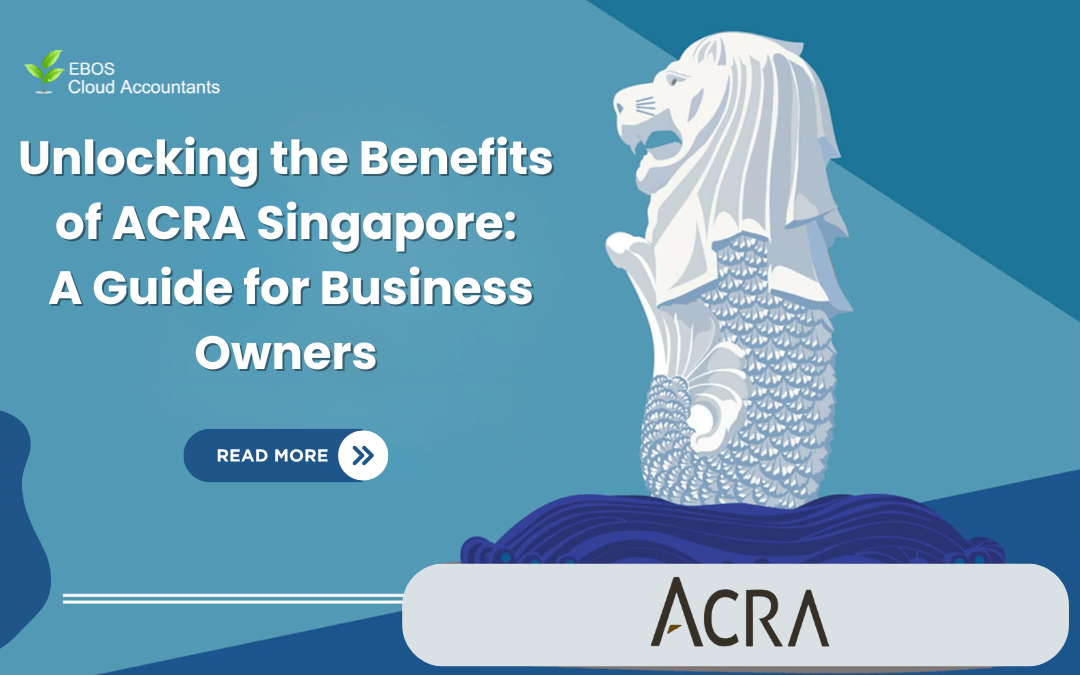Singapore’s central location in Southeast Asia serves as a gateway to regional markets. Its well-developed infrastructure, which includes world-class ports and airports, improves connectivity and promotes trade and investment.
Indeed, Singapore attracts many entrepreneurs and investors; yet, creating a business that is registered with ACRA Singapore requires a complete understanding of the regulatory structure in existence. The Accounting and Corporate Regulatory Authority (ACRA) has a significant role in this process. ACRA is Singapore’s national regulatory body for business companies, public accountants, and corporate service providers.
Dive further into the ACRA Singapore information presented in this guide. Understand the nature of ACRA regulations and how they benefit your business operations.
Understanding ACRA
The Accounting and Corporate Regulatory Authority (ACRA) is Singapore’s national regulator of business entities, ensuring statutory compliance while also fostering transparency and responsibility in the corporate sector. ACRA, established under the Accounting and Corporate Regulatory Authority Act, is critical to ensuring the integrity and efficiency of Singapore’s business ecosystem.
Understanding ACRA’s position, major functions, and the significance of compliance is critical for firms operating in Singapore. Businesses who collaborate with ACRA Singapore and adhere to regulatory norms can preserve their competitiveness, protect their interests, and contribute to the long-term success of Singapore’s vibrant business environment.
How Does ACRA Singapore Work?
ACRA Singapore serves as the national regulatory authority for corporate entities and businesses in the country. This is how ACRA works:
- Company Registration: ACRA regulates the registration of businesses in Singapore, including corporations, partnerships, and sole proprietorships. It guarantees that all registered entities meet legal standards and keep proper records.
- Regulation: ACRA Singapore controls corporate governance standards and financial reporting processes to ensure business transparency and integrity. It establishes and enforces accounting standards, ensuring that financial statements represent a true and fair picture of a company’s financial status.
- Enforcement: ACRA Singapore has the authority to enforce regulatory compliance through audits, investigations, and penalties for noncompliance. It takes action against organizations and persons found to have violated regulations, protecting the interests of shareholders, creditors, and the general public.
Benefits of Registration
There are various benefits to registering a business with ACRA, including:
A. Allowing members of the public to look up and verify information about your company and its owners.
B. Making it easier for customers to identify, locate, and interact with your company.
C. Allowing you to participate in government tenders and get intellectual property or patents for new products and technologies.
Furthermore, if you opt to incorporate a company or establish a limited liability partnership (rather than filing a sole proprietorship or partnership), your personal and business finances are kept separate. This means that your obligations are limited, which means that if the firm is sued, you will not lose your assets.
In Summary
ACRA Singapore provides a variety of benefits to businesses, including efficient company registration, transparent corporate governance, access to public information, regulatory compliance and enforcement, regulatory guidance and support, innovation and efficiency promotion, and global recognition and collaboration.
These advantages add to Singapore’s appeal as a desirable location for business formation and expansion.
Contact EBOS Cloud Accountants today to file your ACRA returns on schedule, which is critical for maintaining compliance with Singapore’s regulatory obligations. Fulfilling your duties on time can help your organization maintain its good reputation.








He Got 256,354 Free Views With AI…
Can you believe it?
People spend thousands of dollars to get that kind of result…
My friend Kundan just did it for free…
He only used his new app… AI ScreenSnap…
It’s the world’s first AI app that can generate videos with the power of Video-Exclusive AI Engine…
That can edit, record, and generate videos with just a few clicks… with zero experience…
Click here now and watch AI ScreenSnap in action https://ext-opp.com/AIScreenSnap